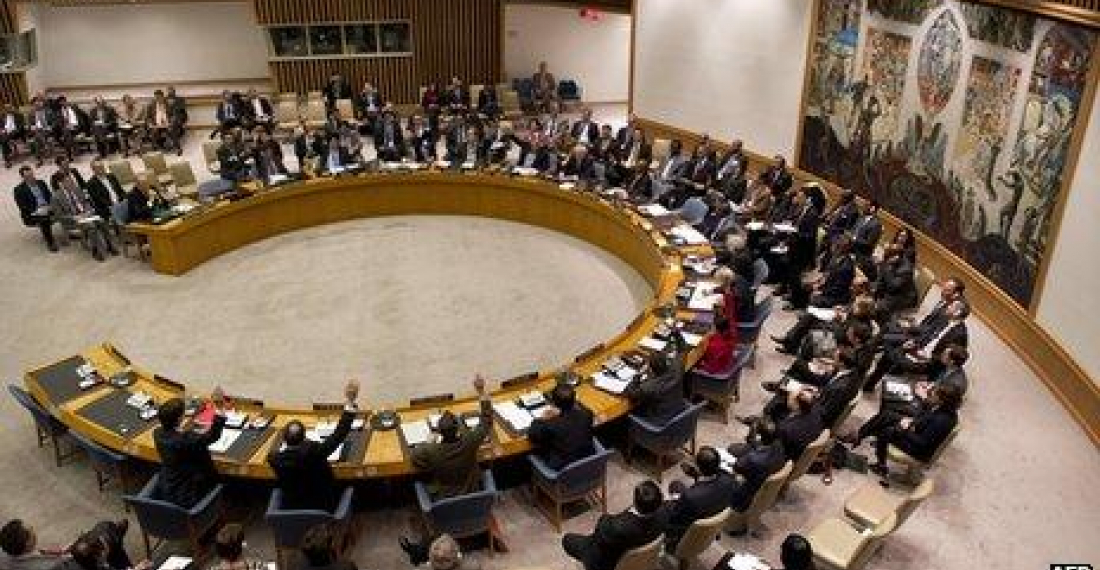UN Security Council members have backed Iraq’s demand for a major investigation into a deadly July 20 artillery attack on a tourist area popular with Iraqis in the mountainous Duhok governorate of the Kurdistan region that left at least nine people dead and 23 others wounded. It comes only days after the Security Council unanimously condemned the attack “in the strongest terms.” However, council members did not mention Turkey during the emergency meeting late on Tuesday that was sought by Iraq and the UAE to discuss the attack.
On the day of the strike, Baghdad summoned Turkey’s ambassador to condemn what it described as a “heinous crime committed by the Turkish troops, which has topped its continuous aggressions on the sovereignty of Iraq and its territories.”
Turkey has denied responsibility, and blames the Kurdistan’s Workers’ Party, which it considers a terrorist organization, for the attack. The PKK has been engaged in a long-running guerrilla war in southeast Turkey.
Iraq does not give sanctuary to PKK fighters or its leadership, many of whom take refuge in the mountains where the borders of Iraq, Iran and Turkey meet. Baghdad has repeatedly rejected their presence on its territory.
In April, Turkey began an offensive against the PKK, named Operation Claw Lock, in northern Iraq, invoking Article 51 of the UN Charter, which recognizes a state’s “inherent right of individual or collective self-defence” against attack, without seeking approval from the Iraqi government first.
While the fighting inside Turkey has diminished in ferocity, the Turkish military has continued to cross into Iraq to strike PKK targets.
Turkey’s foreign ministry had described the July 20 attack as targeting “our country’s just and determined stance in the fight against terrorism.”
It urged “Iraqi government officials not to make statements under the influence of the rhetoric and propaganda of the treacherous terrorist organization, and to cooperate in bringing the real perpetrators of this tragic incident to light.”
Iraqi Foreign Minister Fouad Hussein told Arab News after the meeting: “We know who attacked. It is clear to us.”
He said that Security Council members, “almost all of them, mentioned violations of international law, and they talked about aggression. I understand (that they have not mentioned Turkey) because we asked for an investigation. Of course, after the investigation is carried out and the results come out, it will be different.”
Hussein added that although Iraq is certain the Turkish military is responsible for the attack, UNSC members “need more information and I gave them just now the information during the meeting.
“These discussions will continue and we are ready to bring forward more information so (UNSC members) will reach their own decisions and (then) it will be obvious who did this.”
The foreign minister had told the UNSC that his country has “proof” that “this flagrant aggression” was committed by Turkey.
He called for “an international, independent team of inquiry” to look into the attack, and expressed Iraq’s willingness to conduct a joint investigation with Ankara, although he said that the Turks “did not approach us” and “never sent an official letter about an investigation.”
In his remarks to UNSC members, Hussein has called for Turkey’s repeated alleged violations of Iraqi territory and airspace, which he said numbered over 22,000 incidents since 2018, to be added as an item on the UNSC’s regular agenda as the UN body tasked with maintaining international peace and security.
Regular meetings should also work toward Turkey’s withdrawal of its forces, which amount to more than 4,000 troops, from Iraq, Hussein added.
Turkey’s Deputy UN Ambassador Oncu Keceli told the UNSC that Ankara is ready to take all necessary steps “to unveil the truth.”
He accused Iraqi officials of being divided between those who are on the same page with Turkey and others who “chose escalation instead of diplomacy,” starting a misinformation campaign in the hope of driving a wedge between Turkish and Iraqi people.
UN Special Representative and head of the organization’s Assistance Mission in Iraq Jeanine Hennis-Plasschaert gave the UNSC a timeline of the events that followed the attack, and stressed the importance that all strikes on Iraqi territory cease.
“Such aggression not only recklessly heightens national and regional tensions, but also causes, as we have seen, grave human tragedies,” she said.
“As I have said many times in past years, Iraq rightfully rejects the notion that it can be treated as an arena for external and regional rivalries — as an arena where neighbours, and any other actor for that matter, routinely, and with impunity, violate its sovereignty and territorial integrity.”
Turkey condemns attack on Mosul Consulate-General
“An attack took place on the Consulate General of Turkey in Mosul on the morning of 27 July. We condemn this attack, in which no casualties were reported, in the strongest terms and expect those responsible to be brought to justice as soon as possible. We firmly request the Iraqi authorities to fulfil their responsibilities in protecting diplomatic and consular missions,” read a written statement from the Turkish foreign ministry on July 27.
Earlier in the day, Foreign Minister Mevlut Cavisolglu described the attack on the Turkish diplomatic mission as part of ongoing provocations by the terror organizations that carry out their activities due to the ineffective anti-terror struggle of Baghdad.
“According to international treaties, it’s their job to protect the missions in their country. There are terror organizations in their country and they are a threat for them and us,” he told TV100 in an interview.






